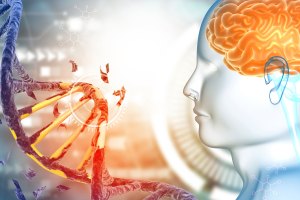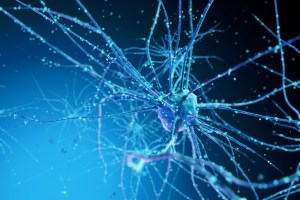Tag: Mental Health
-
Campus & Community
‘Access, awareness, prevention, and support’
Student mental health initiative co-chairs Giang Nguyen and Robin Glover discuss the state of their work.

-
Campus & Community
Starting a conversation on college suicide
More than 1,000 backpacks dotted Harvard Yard, representing the lives of college students lost to suicide every year.

-
Health
Integrity may be good for your health
Study links ‘strong moral character’ traits with reduced risk for depression, anxiety, and cardiovascular disease.

-
Health
Can music improve our health and quality of life?
New research shows the use of music interventions — listening to music, singing, and music therapy — can create significant improvements in mental health, and smaller improvements in physical health-related quality of life.

-
Health
Optimism lengthens life, study finds
Women who reported a positive outlook were likelier to live past 90, regardless of race or ethnicity.

-
Health
Brain inflammation may strike the uninfected
New study reveals that living through the COVID-19 pandemic may trigger brain inflammation that contributes to fatigue, concentration difficulties, and depression.
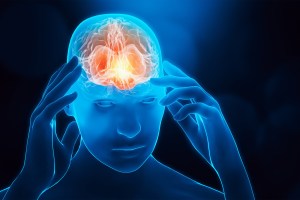
-
Nation & World
We haven’t just suffered during COVID. We’ve learned.
Resilience of young people, new treatment tools give Matt Nock hope amid challenges posed by social media, school and campus disruptions.

-
Health
Is a mobile app as good as a therapist?
A closer look at the mental health apps that claim to treat depression, anxiety, and other mental illnesses.

-
Nation & World
Helping traumatized refugees heal themselves
The Harvard Program in Refugee Trauma has pioneered the study of the impact of mass violence on refugees and treatment for trauma recovery over its 40-year history.

-
Campus & Community
Making Shakespeare feel relevant
Jeffrey Wilson, who teaches Shakespeare to first-year students, says that skeptical students are often the most successful ones.

-
Campus & Community
Thrown into the deep end in the psych ward
Excerpt from memoir chronicles an intern’s day in the ER.
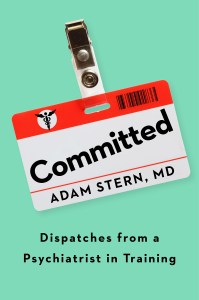
-
Health
Why returning to ‘normal’ feels so not
A Harvard Chan School psychologist counseled awareness and flexibility as people return to work, school, or other pre-pandemic activities.
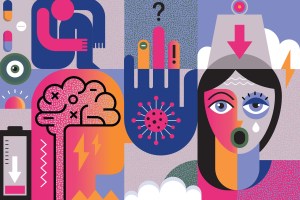
-
Health
New center seeks to understand any ‘magic’ in mushrooms
Massachusetts General Hospital’s new Center for the Neuroscience of Psychedelics aims to better understand psychedelic drugs for therapeutic purposes.

-
Health
How unjust police killings damage the mental health of Black Americans
Harvard Chan’s David Williams, whose research looks at how discrimination affects Black people’s health, talks about his pioneering work to assess the toll that police killings are having on Black mental health.

-
Health
Lessons from Katrina on how pandemic may affect kids
Harvard researchers looked at Katrina’s impact on children and how the lessons learned there could be applied to the COVID pandemic.

-
Health
When even grief is taken away
With 500,000 deaths due to COVID, the U.S. has become a nation in mourning, often alone, also dealing with the trauma of the pandemic’s other effects, a combination that worries mental health experts.
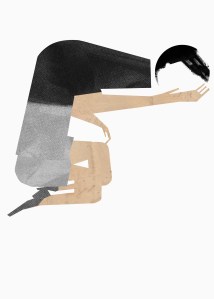
-
Health
Young adults hardest hit by loneliness during pandemic
As experts worry the COVID pandemic is triggering a loneliness epidemic, new Harvard research suggests some of the hardest hit are older teens and young adults.

-
Health
Pandemic pushes mental health to the breaking point
The coronavirus has had an unexpected mental health impact, striking hardest where its physical impacts are lowest: among youths and young adults.

-
Health
Child’s best friend
Mass. General study finds that the loss of a pet can potentially trigger mental health issues in children.

-
Health
Soothing advice for mad America
The anger you’re seeing in the nation and your neighborhood — call it pandemic rage — is not in your imagination, according to a McLean hospital psychologist, who explains where it comes from and how to fight it.

-
Campus & Community
Improving emotional wellness for students
Provost’s Task Force on Managing Student Mental Health details eight recommendations that address a mix of social, academic, and institutional issues.

-
Nation & World
Mental health in Africa amid pandemic
As cases of coronavirus surge in Africa, the challenges experienced elsewhere are compounded by social factors and a shortage of caregivers.

-
Health
Feeling more anxious and stressed? You’re not alone
Uncertainty, unemployment, and ill health are combining to feed a rise in concern about America’s mental health as people shelter from the coronavirus and each other, a Harvard Chan School psychiatric epidemiologist said Thursday.


